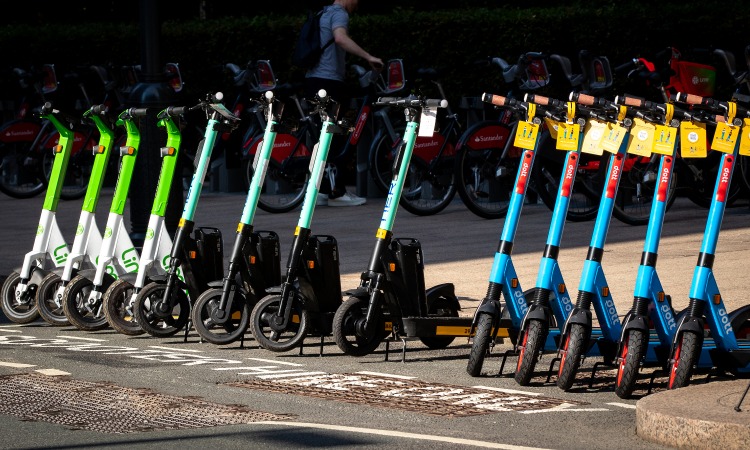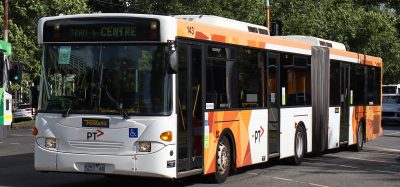TfL announces extension of London e-scooter trial to November 2022
- Like
- Digg
- Del
- Tumblr
- VKontakte
- Buffer
- Love This
- Odnoklassniki
- Meneame
- Blogger
- Amazon
- Yahoo Mail
- Gmail
- AOL
- Newsvine
- HackerNews
- Evernote
- MySpace
- Mail.ru
- Viadeo
- Line
- Comments
- Yummly
- SMS
- Viber
- Telegram
- Subscribe
- Skype
- Facebook Messenger
- Kakao
- LiveJournal
- Yammer
- Edgar
- Fintel
- Mix
- Instapaper
- Copy Link
Posted: 23 May 2022 | Intelligent Transport | No comments yet
The extension of the e-scooter trial will allow TfL and London Councils to continue testing the vehicles safely, as well as assess how micro-mobility could make a positive contribution to a sustainable transport network.


Credit: Transport for London
Transport for London (TfL) has announced that, along with London Councils, it has extended the capital’s trial of rental e-scooters from 6 June 2022 until 20 November this year, which will allow the trial to build on its successes and further explore how e-scooters could play a role in a sustainable transport network.
Since its launch in June 2021, London’s e-scooter trial has expanded significantly, with 10 boroughs, more than 500 designated parking locations and 4,100 e-scooter vehicles now involved. Updated Department for Transport (DfT) guidance allows existing trials in the UK to be extended until November 2022, enabling local authorities to continue to test the vehicles in a safe and legal way.
More than one million journeys have now been made across the three operators that are taking part in the capital’s trial – Dott, Lime and TIER – since the trial’s launch. These journeys cover a total of more than 2.5 million kilometres, with April 2022 having been the busiest month to date. Thousands of users have also benefitted from the operators’ discount schemes, which make the rental vehicles more affordable for people on low-income and with disabilities.
On 11 May 2022, the UK government announced that the forthcoming Transport Bill would introduce a new category of low-speed, zero-emission vehicles, which could include e-scooters, and ensure that they are regulated, safe and licensed. TfL and London Councils welcome this development, which has the potential to make important improvements to the safety of private e-scooters, which are not presently regulated.
Transport for London e-scooter trial celebrates milestone number of trips
Anonymised data from the rental scheme is being used to assess how micro-mobility could make a positive contribution to transport in London, and the extension of the rental trial will enable TfL and London Councils to learn even more about this new category of vehicles before any new legislation comes into force.
Helen Sharp, TfL’s e-scooter trial lead, said: “E-scooters could play an important role in ensuring a green and sustainable future for London and we’re really pleased to be able to extend the e-scooter trial to November. We’re working closely with operators, councils and people across London to build on the success of the trial so far and we’re pleased that people will continue to benefit until the autumn.”
Katharina Winbeck, London Councils’ Strategic Lead for Transport and Environment said: “We will continue to look closely at data and insights as the trial is extended to see how e-scooters can play a part in a more sustainable and healthier future for London, especially now that government has confirmed legislation is expected to regulate e-scooters across the country. The London trial will be very important to inform this new legislation to ensure e-scooters are rolled out safely in local areas.”
Rental e-scooters in London are required to meet high safety standards which go beyond the national standards, including a speed limit of 12.5mph, larger wheels and lights that are always on throughout any rental. To help ensure the success of the trial, Londoners are encouraged to report any issues they experience, including poor rider behaviour, to the operators or TfL. Reports of poor rider behaviour are taken seriously, and the operators have warned or banned more than 200 people for dangerous behaviour to date. Private e-scooters remain illegal for use on roads and cycle lanes.
If you liked this, you may also be interested in:
▶ Brits prefer to tackle climate change by switching to greener transport, says TIER survey
▶ How active and shared mobility is a win-win for cities by unlocking climate and economic benefits
Related topics
Air Quality, Alternative Power, Fleet Management & Maintenance, Mobility Services, On-Demand Transport, Sustainable Urban Transport
Related modes
Bikes & Scooters
Related cities
London
Related countries
United Kingdom
Related organisations
Department for Transport (DfT), London Councils, Transport for London (TfL), UK Government
Related people
Grant Shapps








